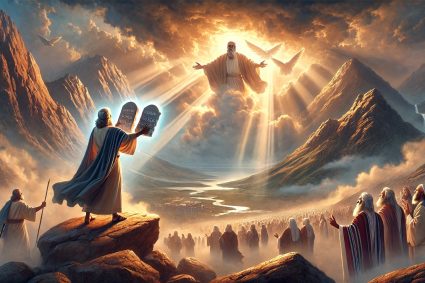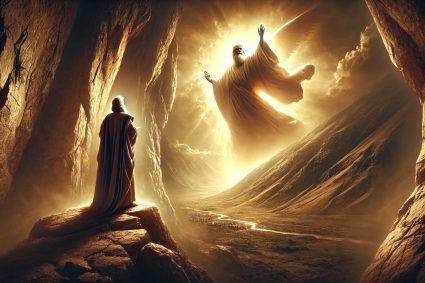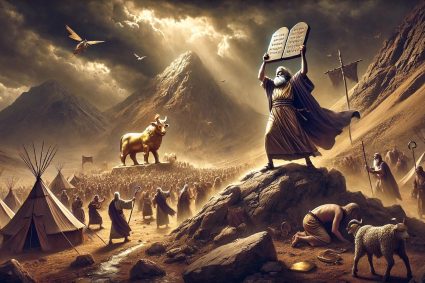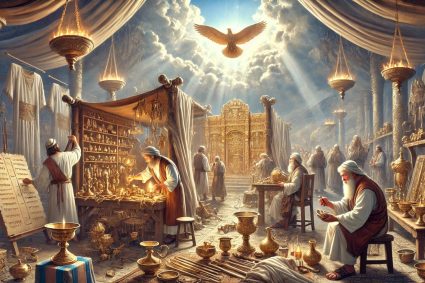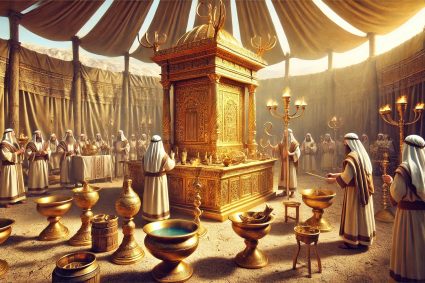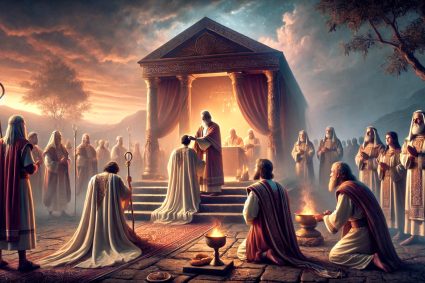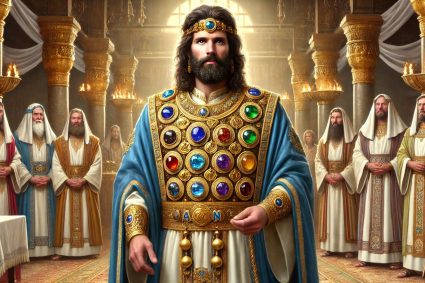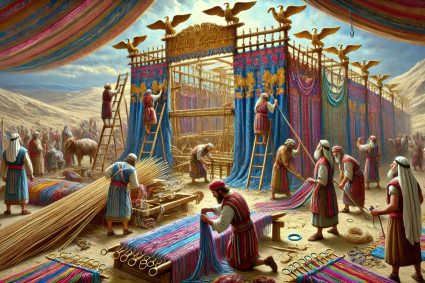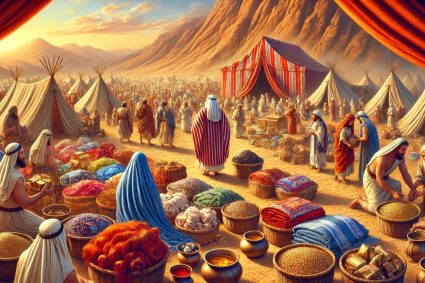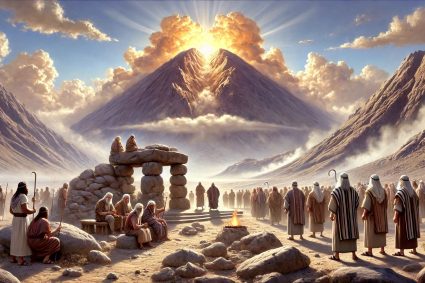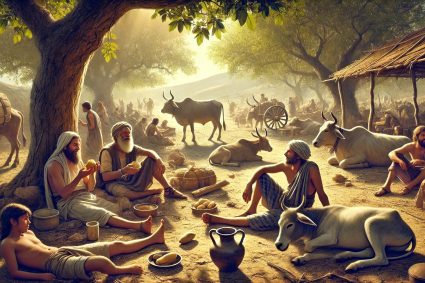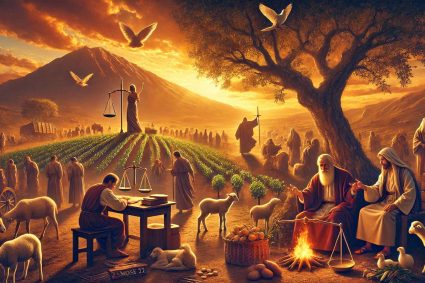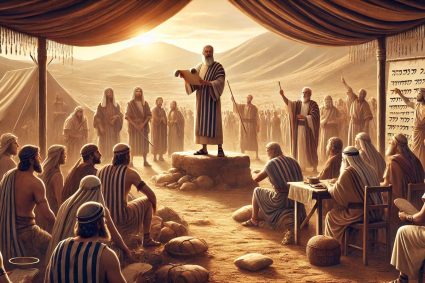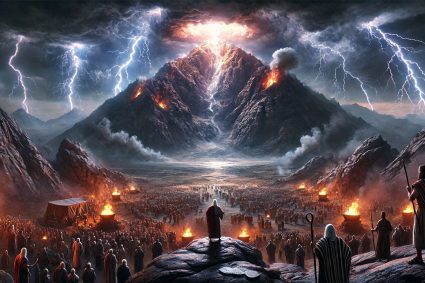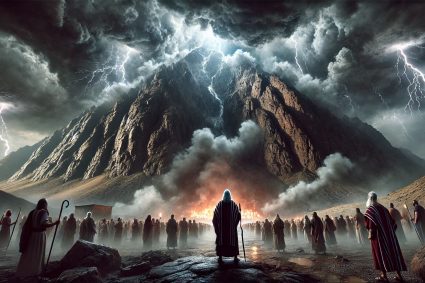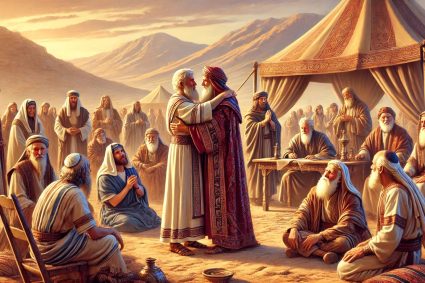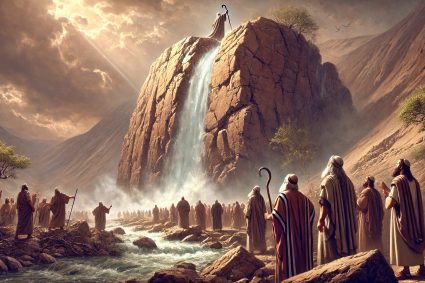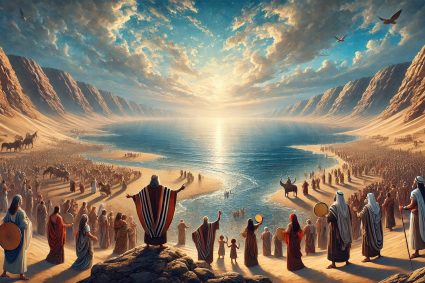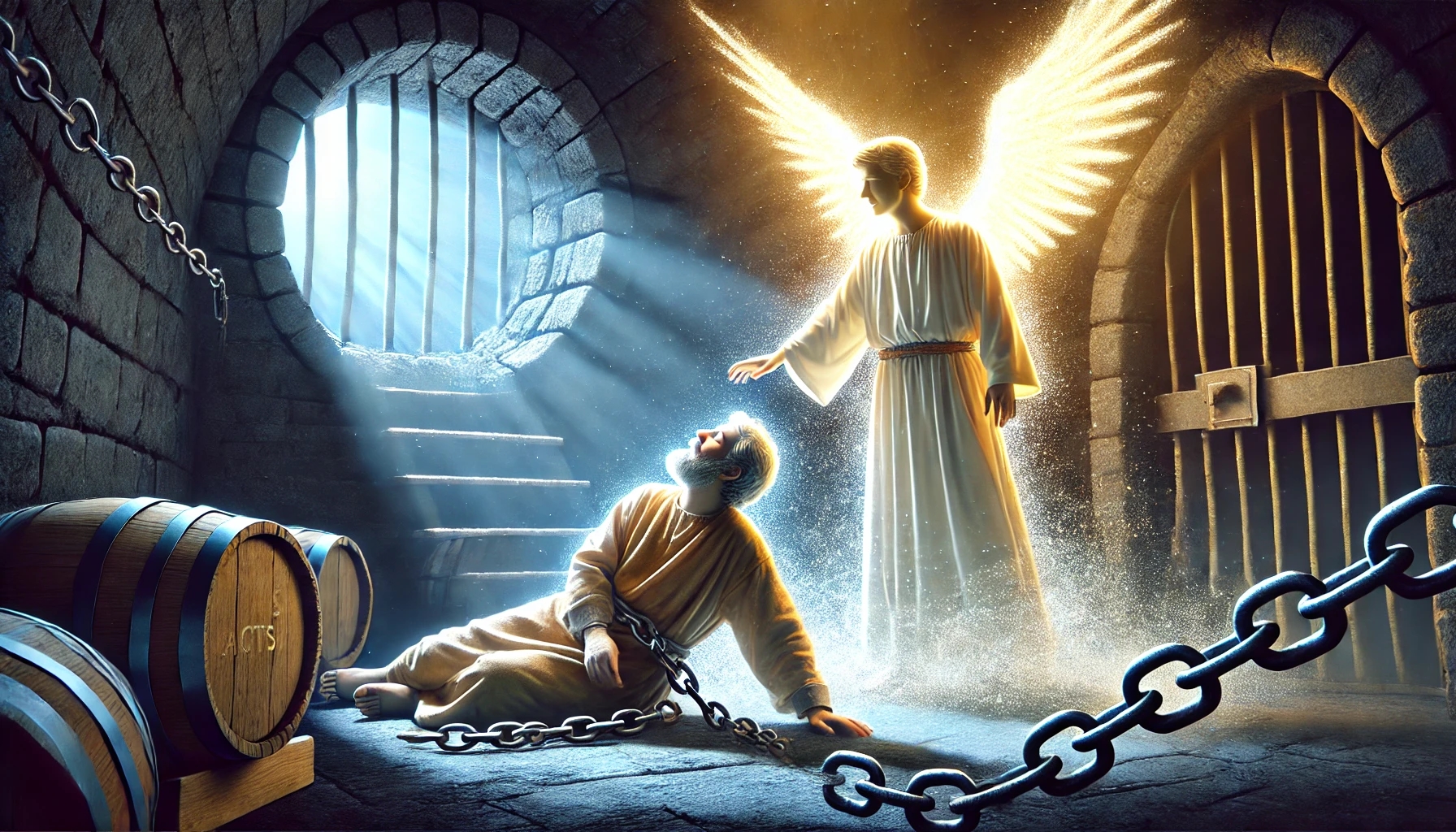
November 8, 2024
DAILY BIBLE READING – Acts Chapter 12
1 Now about that time Herod the king stretched forth his hands to vex certain of the church.
2 And he killed James the brother of John with the sword.
3 And because he saw it pleased the Jews, he proceeded further to take Peter also. (Then were the days of unleavened bread.)
4 And when he had apprehended him, he put him in prison, and delivered him to four quaternions of soldiers to keep him; intending after Easter to bring him forth to the people.
5 Peter therefore was kept in prison: but prayer was made without ceasing of the church unto God for him.
6 And when Herod would have brought him forth, the same night Peter was sleeping between two soldiers, bound with two chains: and the keepers before the door kept the prison.
7 And, behold, the angel of the Lord came upon him, and a light shined in the prison: and he smote Peter on the side, and raised him up, saying, Arise up quickly. And his chains fell off from his hands.
8 And the angel said unto him, Gird thyself, and bind on thy sandals. And so he did. And he saith unto him, Cast thy garment about thee, and follow me.
9 And he went out, and followed him; and wist not that it was true which was done by the angel; but thought he saw a vision.
10 When they were past the first and the second ward, they came unto the iron gate that leadeth unto the city; which opened to them of his own accord: and they went out, and passed on through one street; and forthwith the angel departed from him.
11 And when Peter was come to himself, he said, Now I know of a surety, that the Lord hath sent his angel, and hath delivered me out of the hand of Herod, and from all the expectation of the people of the Jews.
12 And when he had considered the thing, he came to the house of Mary the mother of John, whose surname was Mark; where many were gathered together praying.
13 And as Peter knocked at the door of the gate, a damsel came to hearken, named Rhoda.
14 And when she knew Peter’s voice, she opened not the gate for gladness, but ran in, and told how Peter stood before the gate.
15 And they said unto her, Thou art mad. But she constantly affirmed that it was even so. Then said they, It is his angel.
16 But Peter continued knocking: and when they had opened the door, and saw him, they were astonished.
17 But he, beckoning unto them with the hand to hold their peace, declared unto them how the Lord had brought him out of the prison. And he said, Go shew these things unto James, and to the brethren. And he departed, and went into another place.
18 Now as soon as it was day, there was no small stir among the soldiers, what was become of Peter.
19 And when Herod had sought for him, and found him not, he examined the keepers, and commanded that they should be put to death. And he went down from Judaea to Caesarea, and there abode.
20 And Herod was highly displeased with them of Tyre and Sidon: but they came with one accord to him, and, having made Blastus the king’s chamberlain their friend, desired peace; because their country was nourished by the king’s country.
21 And upon a set day Herod, arrayed in royal apparel, sat upon his throne, and made an oration unto them.
22 And the people gave a shout, saying, It is the voice of a god, and not of a man.
23 And immediately the angel of the Lord smote him, because he gave not God the glory: and he was eaten of worms, and gave up the ghost.
24 But the word of God grew and multiplied.
25 And Barnabas and Saul returned from Jerusalem, when they had fulfilled their ministry, and took with them John, whose surname was Mark.
King James Version. Public Domain
Commentary
![]()

WEEKLY SPIRIT OF PROPHECY READING – Ellen White | The Desire of Ages
Chapter 74—Gethsemane
This chapter is based on Matthew 26:36-56; Mark 14:32-50; Luke 22:39-53; John 18:1-12.
Read online here
Commentary
Introduction:
Chapter 74, “Gethsemane,” leads us into the deepest and most moving episode in the life of Jesus: the prayer and inner struggle in the Garden of Gethsemane, immediately before His arrest. The Gospel accounts of Matthew, Mark, Luke, and John depict how Jesus, accompanied by His closest disciples, goes to Gethsemane at night and prepares for the impending suffering. This scene reveals the painful inner conflict that Jesus experiences in His human nature as He willingly takes on the burden of the world’s sins. Here in Gethsemane, His absolute dedication and obedience to the Father’s will become intensely visible. The disciples, exhausted and inattentive, fall asleep while Jesus engages in the most bitter spiritual struggle of His life. Gethsemane becomes the epitome of His sacrifice and His unparalleled love for humanity.
Commentary:
Jesus’ prayer in Gethsemane is a portrayal of deepest devotion and pain. Here, we encounter a side of Jesus that is both human and divine: He wrestles with the burden of sin that threatens to separate Him from the presence of God. This scene reveals that Jesus, although divine, truly endures the wrath and consequences of human sin in His human nature. The words “Father, if it is possible, let this cup pass from me” demonstrate His anguish and simultaneously His willingness to follow God’s will, predestining Him as the sin offering for humanity.
Jesus’ dedication is all the more remarkable in light of the weakness of His disciples. He urges them to stay awake and pray, yet three times He returns to find them asleep. This scene highlights human frailty in the face of spiritual reality and accentuates Jesus’ loneliness and determination. The angels who appear to Him at the end serve as the final divine encouragement before He embarks on the painful path to the cross. Through this episode, it becomes clear that Jesus, fully aware of the magnitude of His sacrifice, resolutely continues the path to the redemption of humanity.
The climax comes when Jesus confronts His betrayers and the armed crowd without using divine power to defend Himself or flee. Instead, He faces His impending fate calmly and steadfastly. His example in Gethsemane is a powerful image of self-sacrifice and obedience to God’s will, regardless of personal pain and suffering.
Summary:
Chapter 74 describes the events in the Garden of Gethsemane, where Jesus experiences the most severe inner struggle of His life before His suffering and crucifixion. In deep prayer, He wrestles with the burden of humanity’s sins and the separation from the Father that sin brings. Despite His anguish, He decides to fulfill the Father’s will and drink the “cup” that lies ahead. The disciples who accompany Him fail to stay awake and fall asleep despite His pleas. After a final prayer, Jesus receives divine strength from an angel that fortifies Him for His journey. When the soldiers and the betrayer Judas arrive, Jesus faces them without resistance and is taken captive. The scene in Gethsemane highlights Jesus’ willingness to sacrifice and dedication, becoming the symbolic center of His suffering for humanity.
(Visited 9 times, 1 visits today)

